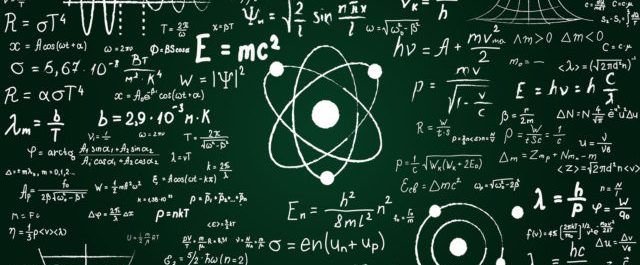Entry Requirements
Click the button to read our faculty brochure or read more about the course below:
- Six GCSEs 9-4 (or A*-C)
- Two from English, Maths OR Science
- Two at least grade 6
Course specific requirements: GCSE Maths (higher tier) grade 9-6 WITH EITHER GCSE Physics grade 9-6 OR GCSE Combined Science grades 9,9-6,6
*To choose more than one subject from Maths, Biology, Chemistry or Physics: (minimum of a grade 7 and 6 in the chosen subjects and one other grade 6 in science/maths).

A Level Physics
- Ever wondered how a Formula One car turns a corner?
- Why does the Earth orbit the sun?
A Level Physics is an exciting and important course which can offer you huge opportunities for your future. You will learn what’s inside a proton and how a nuclear reactor works. Learn how an engineer designs a bridge and a quantum physicist can make light act like a particle. Physics will inspire you to see the world around you in a totally new way.
Exam board: AQA
Components
Paper 1
Percentage of total marks: 34%
Method of assessment: Written Exam 2 hours
Mechanics, Materials, Electricity, Waves, Particle Physics and Quantum Physics, Circular Motion, Pendulums
Paper 2
Percentage of total marks: 34%
Method of assessment: Written Exam 2 hours
Gravitational Fields and Satellites, Electric Fields and Capacitors, Magnetic Fields, Radioactivity and Nuclear Power, and Thermal Physics
Paper 3
Percentage of total marks: 32%
Method of assessment: Written Exam 2 hours
Practical Skills and Particle Physics, Quantum Physics and Relativity.
Skills
An A-level in Physics shows you are confident with both problem solving and scientific thinking, and are good at working with numbers. Physics will challenge you to think about the world you live in and explain why and how things happen.
Careers/destinations
Well over 75% of physics students progressed to university, with 60% progressing to a Russell Group university and 4 students going to Oxford or Cambridge. The vast majority of students pursued a science or engineering based course such as Mechanical Engineering or Aeronautical Engineering, with some as varied as Robotics or Aviation Technology.
Physics
What will I study?
In Physics you’ll study topics you may be familiar with, such as Mechanics, Materials and Waves, but in more detail and more focus on the maths behind them. You’ll also study new topics such as Particle Physics, Quantum Mechanics, Radioactivity, Gravitational Fields, Astronomy and Relativity.
Which exam board do you follow?
We cover the AQA Physics A-Level specification. You will sit three exams at the end of your second year, two on physics content, and the third on practical skills and turning points in Physics (which covers aspects of quantum mechanics, particles physics and relativity). You will also complete the CPAC Practical Endorsement, which shows that you are competent in a range of practical skills.
What support is there if I am struggling?
Our teachers are always here to help and can arrange a one to one appointment to support you. We run extra support sessions once a week alongside lessons and also offer a lunchtime drop-in session for each year group.
I’d like to apply to a top university, what extra support do you offer?
We offer extra sessions to stretch and challenge high achieving students and to help prepare for further study.
I am worried that I’m not taking triple science. Will it matter?
This doesn’t matter at all; we have lots of students every year who have taken two science GCSEs and it is not a disadvantage.
What are the average class sizes, and what are the classrooms like?
Each year we have around 450 physics students, organised into classes of around 20. We have two modern laboratories with a full range of physics equipment.
What extra opportunities are there?
Students take the British Physics Olympiad competitions, with several receiving certificates last year. In 2019, students also took part in the Institute of Physics Poster competition, attended IoP Manchester monthly lectures at Manchester Metropolitan University, attended the Medical Physics evening at the Christie Hospital, and we run weekly sessions to push students towards
A* grades with challenging questions.
What trips do you offer?
Each year we take 40 students to visit the Large Hadron Collider in Geneva, and to visit an experimental fusion reactor in Lausanne, Switzerland. We are planning trips to Jodrell Bank to learn about binary stars and Manchester University to learn about material science. These trips are reviewed each year.
